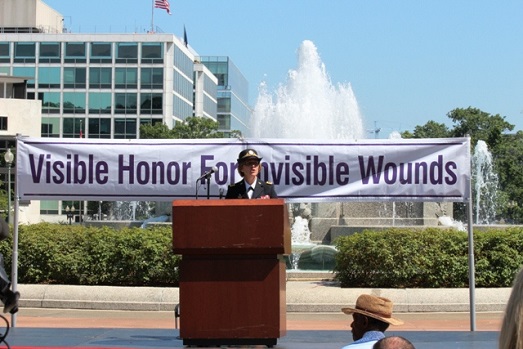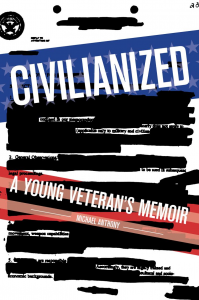War veterans are the ones who usually develop PTSD. This can occur while they are still working with the military or after. Thankfully, the Department of Veterans Affairs has several programs that can help retired soldiers cope up with PTSD. From diagnosing the common symptoms to intensive treatment, the VA has you covered. Moreover, they also employ numerous mental health professionals who relentlessly research on new and effective ways to help PTSD patients and their families.
In this post, you will learn more about the Department of Veterans Affairs’ PTSD treatment programs and how you can apply for help.
Eligibility for VA PTSD Services
Every war veteran has a chance to be eligible for the VA’s PTSD services. Here are the factors that can affect your eligibility:
- You managed to perform active military services when you were in the Navy, Air Force, Marines, Coast Guard, or Army.
- You were discharged by the military under honorable conditions.
- You are part of the National Guard or Reservist corps and you completed a federal deployment in a combat area.
However, you should also take note of the following:
- Health care services are also available for veterans who did not serve in combat.
- You can still use the veteran’s health care services, even on non-medical injuries or health concerns that are connected to military service.
- The benefits that you get from another health care system are different from the benefits at the Department of Veterans Affairs.
- The health care facilities at VA hospitals are available for both men and women.
Available PTSD Treatments
Thanks to the advancements in medicine and technology, veterans suffering from PTSD can choose from a variety of treatments. Below is a list of mental health treatments offered by the VA:
Cognitive Behavioral Therapy (CBT)
This one is a type of counseling method and is considered as one of the most effective methods for treating PTSD. The VA offers two types of therapies under CBT. One is the Cognitive Processing Therapy (CPT) and the other one is Prolonged Exposure treatment.
CPT will teach you effective ways for handling any distressing thoughts that come in your head. Therapists can walk you through your previous experience (in a safe manner) and help you understand the situation better. If you know how the traumatic experience changed your outlook and behavior, it will be easier for you to cope with it.
CPT has four main processes:
- Diagnose any PTSD symptoms and learn how the therapy can help
- Gaining more awareness about your inner feelings
- Cognitive restructuring – the processes of challenging your thoughts and feelings
- Understanding the sudden changes in your beliefs after facing a traumatic experience
Aside from frequent meetings with a mental health professional, you will also be given practice exercises that will develop your emotional and cognitive well-being, even when you’re outside the therapist’s office.
The second option for the CBT is the Exposure Therapy. As the name implies, this treatment requires the patients to be repeatedly exposed to any feelings or situations that they have been avoiding. This will teach war veterans that not everything that reminds them of a traumatic event should be avoided.
After identifying all of the situations that you commonly avoid, your therapist will require you to confront all of them until your stress levels or fears decrease.
Similar with the CPT, the Exposure Therapy also has four parts:
- Educating yourself about the symptoms of PTSD and how Exposure Therapy can help you out
- Training how to breathe. This may sound like a silly task, but it is actually an effective relaxation technique that will help you overcome stress.
- Facing the normal and safe situations that you commonly avoid. The more you become exposed to these situations, the easier it will be to get over your PTSD.
- Discussing the traumatic experience and learning how to control your thoughts and feelings.
Exposure Therapy requires around 15 sessions with your therapist and practice assignments that you need to do on your own. As time goes by, you will be able to control your reactions when faced with stressful situations.
Eye Movement Desensitization and Reprocessing (EMDR)
In this type of therapy, you will be required to focus your attention on hand gestures while you are discussing the traumatic events that triggered PTSD symptoms.
When our eyes are following fast movements, it becomes easier for our brains to process traumatic events. If you have other things to focus on while discussing these memories, your behavior will change as time goes by. It will also help that you relax and efficiently handle any emotional distress in the future.
EMDR is composed of four parts:
- Identifying the traumatic memory or belief that triggered any negative reactions
- Learning how to desensitize yourself when recalling traumatic memories. In this stage, you will create mental images while performing eye movements that your therapist will teach you
- Reinforcing positive thoughts
- Undergoing a body scan. The therapist will focus on tension in your body in order to determine the additional issues that you need to face in the future.
After the EMDR sessions, you will have a more positive outlook when recalling traumatic events in your life. It usually takes around four sessions with a therapist to see the improvements.
PTSD Services offered by the VA
- Thorough mental health testing
- Providing medications
- One-on-one psychotherapy sessions
- Therapy sessions for the family
- Conducting of group therapy sessions. The topics covered in these sessions include stress management, searching for combat support, and strengthening relationships with the family. There are also support groups for war veterans with a specific type of trauma.
The treatments offered by the VA are thoroughly researched to make sure that they are effective on war veterans. However, please be reminded that the programs offered may vary per VA hospital. In some cases, the treatments may also need a referral. Your personal physician can guide you in selecting the program that suits you best.
Civilianized: A Young Veteran’s Memoir
In this dark humored War Memoir, Iraq veteran Michael Anthony discusses his return from war and how he defeated his PTSD. Civilianized is a must read for any veteran, or anyone who knows a veteran, who has returned from war and suffered through Post-Traumatic Stress Disorder (PTSD).
“I wont soon forget this book.” -Mary Roach
“A must read.” -Colby Buzzell
“[S]mart and mordantly funny.” –Milwaukee Journal Sentinel
“Anthony delivers a dose of reality that can awaken the mind…” Bookreporter
Order your copy of Civilianized: A Young Veteran’s Memoir .
Picture: Flickr/Army Medicine



 A good physical exercise that’s recommended for veterans suffering with PTSD is yoga. Yoga can be very strenuous and physically demanding, and is often done in heated rooms over 100 degrees, and at the end of every yoga session there is a fifteen minute period of meditation. With yoga a person will be able to combine two methodologies from the military’s mental toughness program. They will have the purely physical component of the exercise and the mental component of the meditation. It’s a win win.
A good physical exercise that’s recommended for veterans suffering with PTSD is yoga. Yoga can be very strenuous and physically demanding, and is often done in heated rooms over 100 degrees, and at the end of every yoga session there is a fifteen minute period of meditation. With yoga a person will be able to combine two methodologies from the military’s mental toughness program. They will have the purely physical component of the exercise and the mental component of the meditation. It’s a win win.